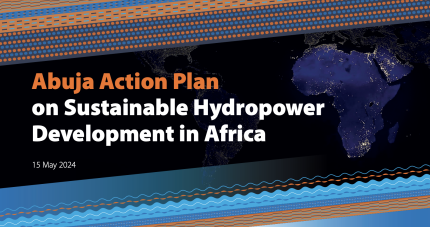
In a strategic move to bolster energy security and sustainability across Africa, the Abuja Action Plan on Sustainable Hydropower Development has been unveiled. Recognizing the critical role hydropower plays in the continent’s energy landscape, the plan aims to expand electricity supply by 50% by 2030 and quadruple it by 2050. Hydropower currently supplies 40% of sub-Saharan Africa’s electricity, underscoring its significance as a reliable and familiar technology.
The challenge lies in scaling up this capacity affordably while addressing climate change. Hydropower is championed as an affordable, renewable, clean, and green solution that can significantly enhance energy security and access. It also complements other renewable technologies like solar and wind, which require firm, dispatchable, and flexible resources that hydropower can provide.
Key steps and recommendations:
- Optimizing existing infrastructure: Many of Africa’s hydro facilities are aging, leading to deteriorating performance. Refurbishing these stations could reinstate and even expand their generation capacity, offering substantial benefits at relatively low costs.
- Investing in new projects: With approximately 90% of Africa’s hydropower potential untapped, there is significant scope for new greenfield projects and pumped storage hydropower sites. These are essential as variable renewables become more dominant.
- Political support and enabling policies: Hydropower projects require sustained political backing due to their complex nature and long development cycles. Governments need to implement enabling policies, reform markets that disincentivize hydropower investments, remove unnecessary planning barriers, and secure fair-cost capital.
- Private investment and public-private partnerships: Encouraging private sector participation could expedite development and reduce costs. The hydropower industry is ready to engage, with private investors showing growing interest in the sector.
- Commitment to sustainability: Hydropower projects should adhere to the Hydropower Sustainability Standard, ensuring environmental and social issues are addressed. Certification under this standard can facilitate access to finance and expedite project approval processes.
Call to Action:
The Abuja Action Plan calls on African governments to:
- Recognize and champion sustainable hydropower as a modern and affordable solution for secure electricity supply.
- Develop long-term renewable energy plans, including hydropower targets.
- Expedite permitting processes while improving decision quality.
- Implement policies that support decarbonization through sustainable hydropower projects.
- Ensure the appropriate development of grid infrastructure to connect hydropower projects to wider grids and support inter-country connections.
The plan also urges International Financing Institutions and Sustainable Development Funds to support renewable energy infrastructure projects through concessional loans and other financial products, recognizing the long lead times of such projects.
In endorsing the Abuja Action Plan, stakeholders reaffirm their commitment to the global principles and recommendations outlined in the San José Declaration on Sustainable Hydropower and the Bali Statement on Powering Sustainable Growth. The plan’s success hinges on collaborative efforts between governments, international bodies, and the private sector to ensure Africa’s hydropower potential is fully realized, driving the continent towards a sustainable and prosperous energy future.


